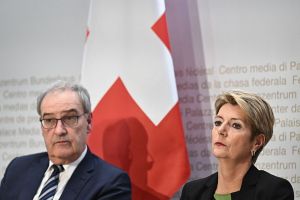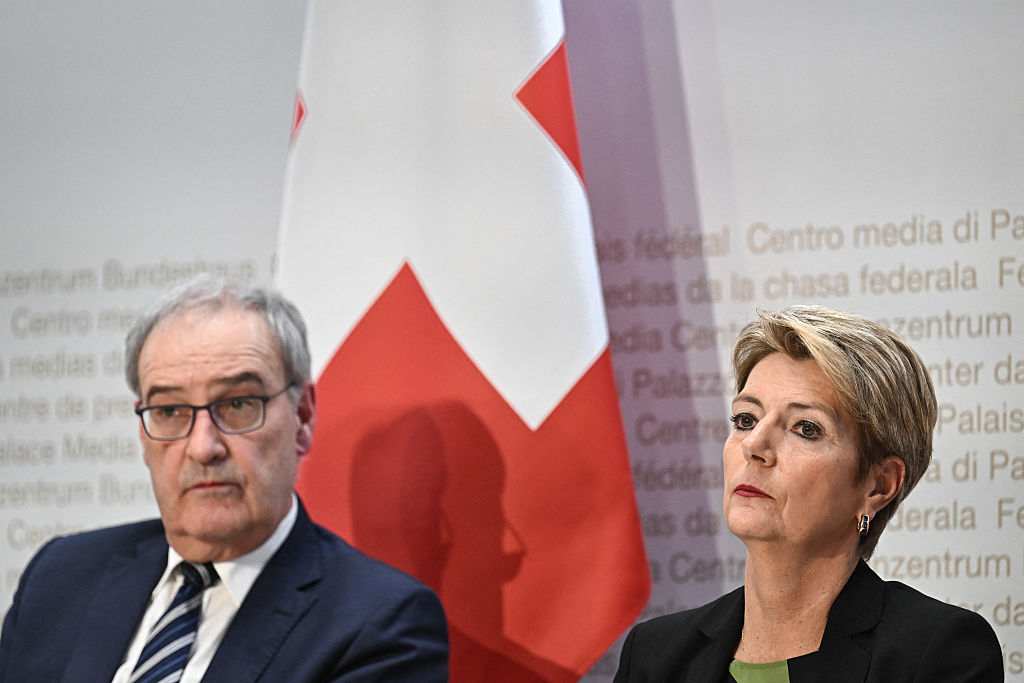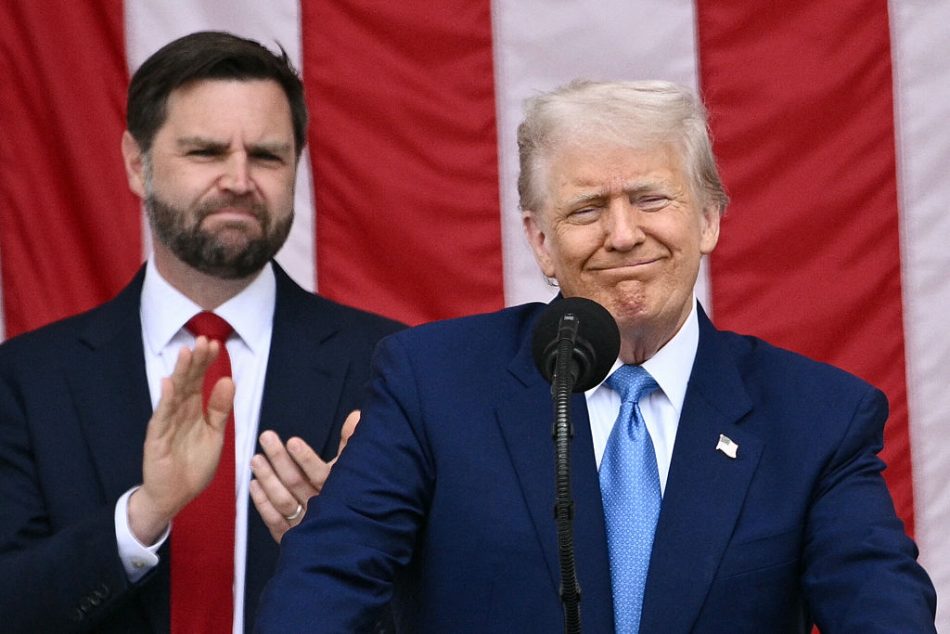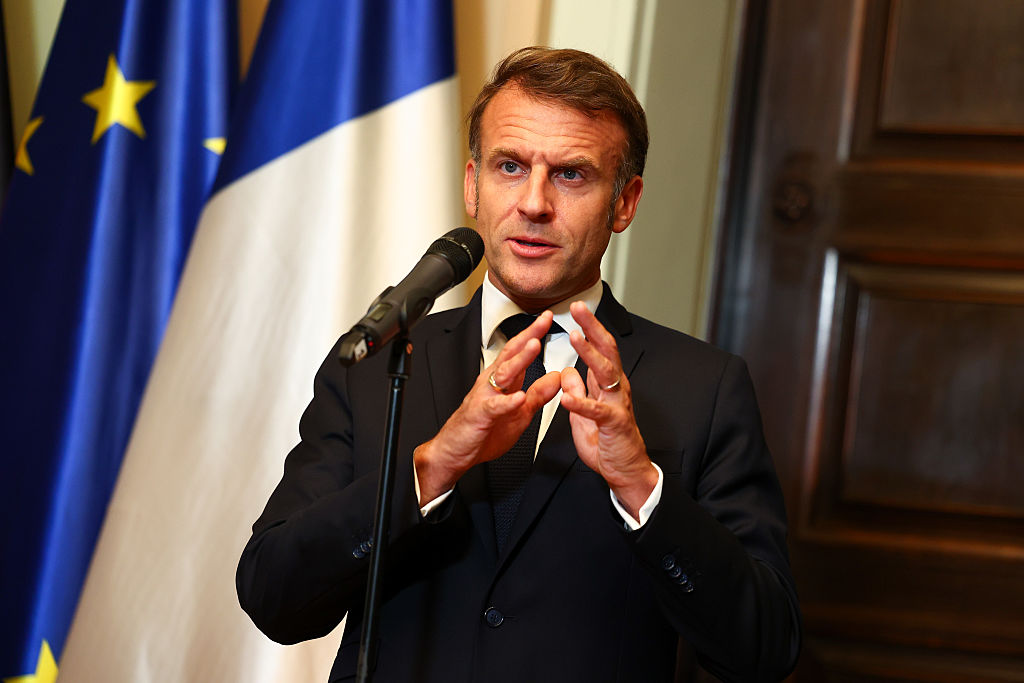In January last year the European Union revealed that it had dreamed up a “secret plan” to sabotage the economy of one of its member states. Brussels was growing impatient with the Hungarian prime minister Viktor Orbán, who had shown the temerity to dissent from EU orthodoxy on a number of issues. In this particular case it was Orbán’s continued use of the veto to block a £50 billion aid package to Ukraine that had angered the bureaucrats and liberal politicians. According to the Financial Times, the EU’s strategy in response would involve targeting Hungary’s economy, weakening its currency and reducing investor confidence. Some £20 billion of funding for Hungary was put on hold.
You look at that and kind of marvel on two counts — first that the institution would try to bankrupt one of its own member states simply because its democratically elected leader dissented from Brussels’ diktat. But you marvel, too, that the EU leaders gathered for the sixty-first annual Munich Security Conference had the sheer effrontery to appear aghast at the lecture they were given by Vice President J.D. Vance on this very stuff (their elitist, authoritarian refusal to let democracy take its course), as if pretending it didn’t happen. They should have been nodding their heads and saying: “Yeah, OK, we do do all of that, sure.”
The only problem with the Vance speech is that it didn’t go far enough and contained insufficient examples of the EU’s warped concept of democracy. The truth is that populist parties of both the right and left have been persecuted by the EU for at least twenty-five years and continue to be. If they somehow hoist themselves into power, they are warned that their country will be fined, or suspended, if they dare to enact the policies on which they were elected.
Or sometimes the EU simply decides that the election is invalid and refuses to let the victorious party take power. That happened in Romania of course — as Vance pointed out — when in November the independent candidate Călin Georgescu won the first round in the vote for president. The second round didn’t take place because a constitutional court in Bucharest raised fears of Russian involvement in the election, but produced not a shred of evidence to back up that assertion.
Well, I say “constitutional court,” but we know that it was the European Commission and the European Union pulling the strings. How do we know that? Because the EU pronounced itself delighted that the election had been put on hold, and a little later the former European commissioner Thierry Breton issued a stark warning that anyone voting for either of the populist parties in February’s German elections would regret their choice. “We did it in Romania, and we will obviously have to do it in Germany if necessary,” this supremely arrogant panjandrum pronounced.
The EU has never been democratic. When Danish voters decided that the Maastricht treaty was a crock in a 1992 referendum, they were simply sent back to the polls and told to get it right. But the gloves really came off with the rise of the populist parties — often the same ones that are poised on the edge of victory in Europe today. The mainstream parties decided, continent-wide, that these people should be excluded from all power-sharing agreements, thus effectively disenfranchising millions of voters and taking no notice of the election results.
When the Austrian People’s party broke the mold at the turn of the century by entering a power-sharing agreement with the right-wing Freedom party (FPO), led by Jörg Haider, the EU was quick to warn the Austrians that their country could be kicked out of the EU if it didn’t watch it. Last year the FPO won the general election but was this time excluded from any power-sharing coalition. The party wants to add a clause that Austria must protect itself against the EU, the WHO and the UN’s Intergovernmental Panel on Climate Change: a stipulation that probably ensures it’ll never be allowed to govern, no matter how many Austrians vote for it.
Then there’s Poland, which was relentlessly persecuted by the EU when governed by the Law and Justice party (PiS). The EU levied fines of more than £300 million because the country’s freely elected government had dared to enact judicial reform (in an attempt to prise former Communist party placemen from the courts).
Poland’s current president, Andrzej Duda — a PiS man until he followed the precedent that Polish presidents shouldn’t be members of any party and resigned from it — later said: “They showed me clearly at that moment, ‘We do not like the fact that you govern Poland. We do not like that people with conservative views — who do not agree with what we propose, who have a different view on many important issues — govern Poland.’”
It is remarkable that the populist parties, who would broadly agree with almost everything said by Vance in his speech, have come so close to power and even (in Hungary, Poland, Slovakia, Italy, Austria, Romania, the Netherlands) actually achieved it, given the obstacles placed in their way. The EU’s methods never vary. First, ensure that the media — largely pro-EU — always refers to them as “far right,” or more recently “pro-Putin.” Second, make sure that they are never allowed into coalitions. If by some chance they do gain power, threaten to fine them and/or kick them out of the EU if they dare to put their policies into effect. And finally, if the worst comes to the worst, declare their elections null and void and put some centrist dad in their place. It was a good speech by Vance — but he only scratched the surface of the EU’s utter contempt for democracy.
Read Roger Kimball on Vance Derangement Syndrome on page 33. This article was originally published in The Spectator’s April 2025 World edition.


























Leave a Reply